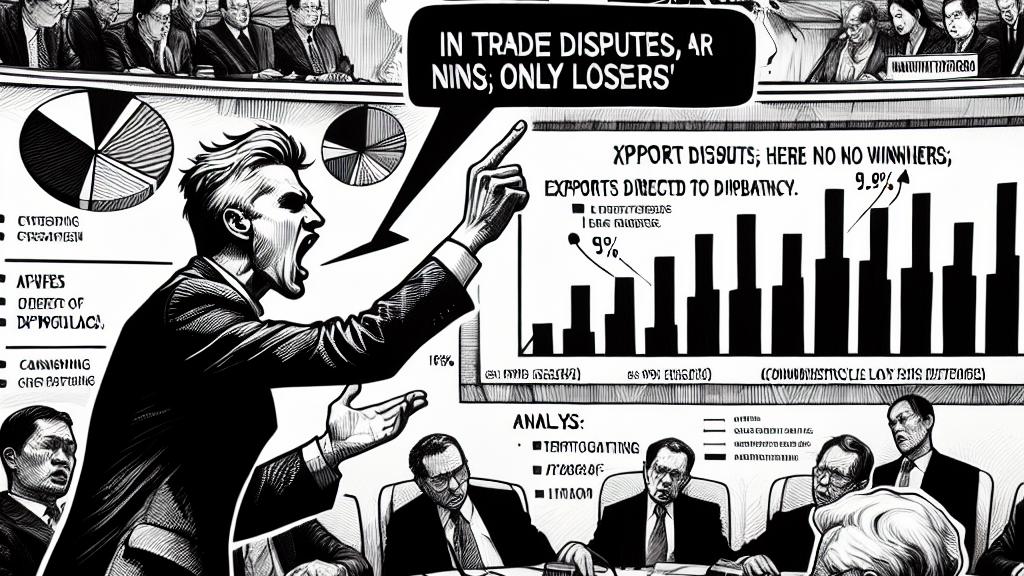German Finance Minister Warns Against Trade War Retaliation
Overview
- Christian Lindner, Germany's Finance Minister, has issued a significant warning about potential retaliation if the U.S. initiates a trade war with the EU.
- Trade is essential to Germany’s economy, with the U.S. being its second-largest partner, making such conflicts particularly precarious.
- The escalating tensions between the U.S. and China also threaten to impact the EU, highlighting the interconnectedness of global trade.

Critical Warnings from Washington: The Stakes Involved
At a high-profile meeting in Washington, D.C., Christian Lindner, the German Finance Minister, raised important alarms regarding the potential fallout from a U.S. trade war with the European Union. He passionately argued that "in trade disputes, there are no winners; only losers“—a poignant reminder of the inevitable hardships resulting from such conflicts. Trade isn’t just an economic statistic; it is the backbone of Germany’s economy, vital for its stability and growth. For instance, recent data shows that about 9.9% of German exports are directed toward the U.S., highlighting its significance as a trading partner. Given this context, Lindner asserted that Germany would be compelled to retaliate if a trade war were initiated, but he expressed a strong preference for pragmatic diplomatic solutions. Moreover, he underscored that the actual trade challenges for the U.S. largely stem from its relationship with China, rather than with the EU, urging clearer thinking in trade policy.
Understanding Tariffs: A Ripple Effect on Economies
The potential scenario of imposing tariffs raises serious concerns regarding economic ramifications that extend beyond immediate financial figures. Consider the possibility of a blanket 20% tariff on imports: this action could significantly harm Germany’s GDP while also inflating consumer prices dramatically. What does this mean in real-world terms? It could lead to a surge in prices for everyday goods, affecting households across the country. Looking back, the U.S.-China trade war serves as a cautionary tale; the tariffs imposed didn’t solve the root problems. Instead, they resulted in substantial economic pain and led to widespread uncertainty, hindering business growth. Experts have pointed out that such escalations often create a cycle of retaliation, where both sides suffer. Therefore, the narratives of struggling workers and companies illustrate the profound human cost of trade wars and the urgent necessity for nations to communicate effectively and seek constructive resolutions.
Germany's Broader Economic Landscape: Challenges Ahead
While the threat of a trade war looms large, it’s crucial to recognize that Germany is already facing significant internal challenges that could be aggravated by external disputes. Specifically, sluggish productivity growth and an aging demographic present complex hurdles that need addressing. Lindner’s frank assessment indicates that the challenges of an aging population could intensify if trade conflicts emerge, as focus would shift away from critical reforms needed for long-term sustainability. For example, fostering greater participation of women in the workforce could help mitigate some of these effects, promoting economic resilience. Furthermore, encouraging skills training for workers displaced by shifts in demand can enhance competitiveness. Thus, Germany's path forward hinges not solely on its trade relationships but also on its ability to embrace proactive reforms that ensure it remains adaptable in a rapidly changing global economy, stressing the importance of a multifaceted strategy that incorporates both diplomacy and internal fortification.

Loading...